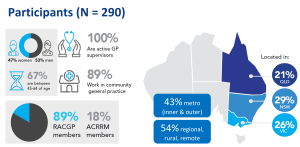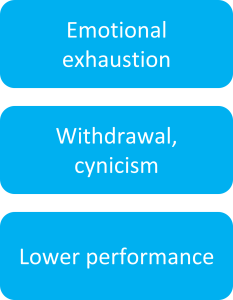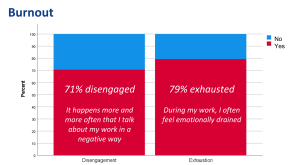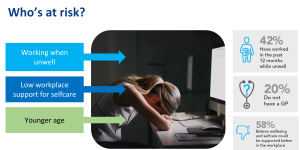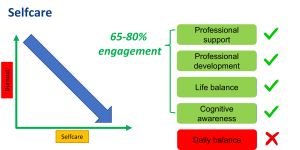Updates
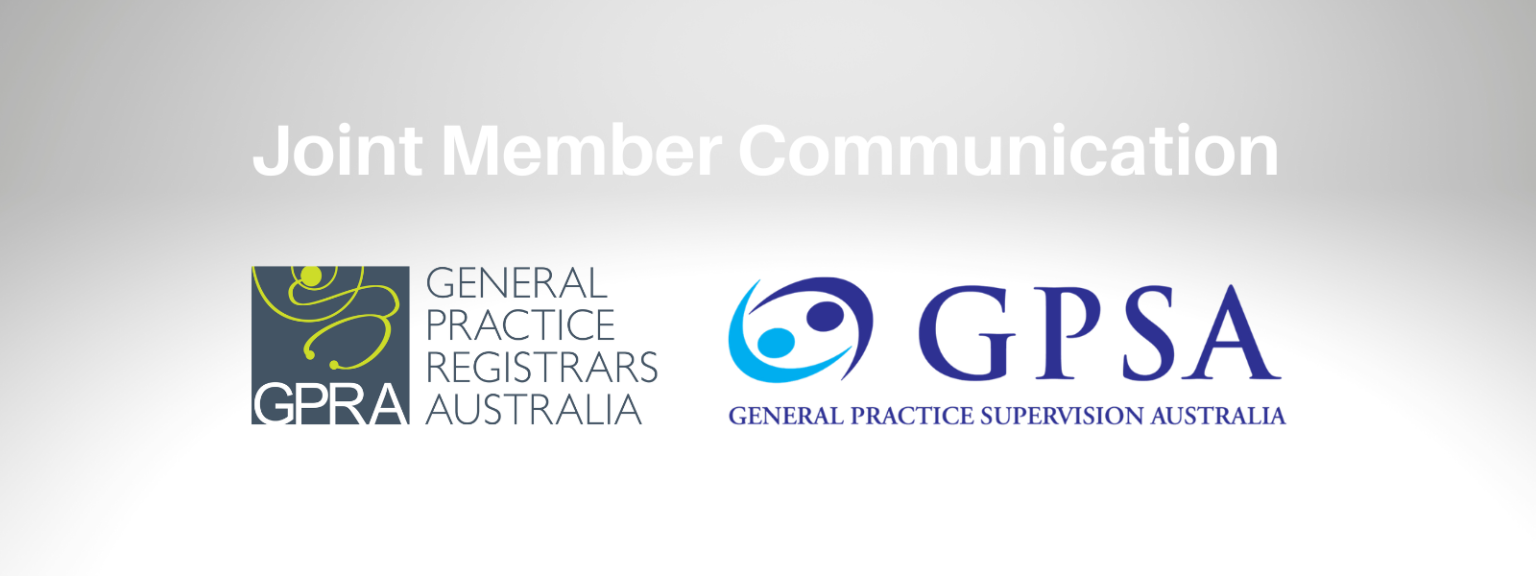
Finalisation of 2022 NTCER Review
General Practice Supervision Australia (GPSA) and General Practice Registrars Australia (GPRA) are happy to announce the conclusion of the biennial 2022 Review of the National Terms and Conditions for Employment of Registrars (NTCER).
Key NTCER amendments to be implemented across the next 4 training semesters (2023.1-2024.2) include:
- Staggered 4% increase to minimum Base Rate (full details outlined in table below);
- Extending Educational Release support for GPT3/CGT3 registrars;
- Amending Educational Release to provide full-time parity for part-time registrars;
- Strengthened focus on fatigue management through increase in allocated Administration Time;
- Revised Preamble to emphasise the minimum nature of the terms and conditions under the NTCER, above which practices and registrars are free to negotiate for mutual benefit and according to commercial viability;
- Replacing the Restrictive Covenant with a Non-Solicitation clause.
As the peak organisations charged with administering the NTCER, GPSA and GPRA have finalised this review as it began – with collaboration, mutual respect, and a positive outlook. Both organisations recognise there is more to be done and will press ahead with advocacy for increased support and investment in the future of primary health care.
The main win for both organisations is the relationship forged through the underpinning principles GPRA and GPSA set for this review process in July 2022:
1) Models of employment for GP registrars across Australia need to be fair and equitable, delivering working conditions and remuneration that compares with other specialist trainees while taking into account the context of training practices;
2) General practice is a rewarding medical specialty and an attractive vocational pathway for junior and/or pre-vocational doctors;
3) GP trainees and GP supervisors are equally desirous of and entitled to a quality training experience;
4) GPRA and GPSA, as the recognised national peak bodies representing all GP registrars, GP supervisors and GP training practices, have a critical role in advising all levels of government on all matters of relevance to the GP training sector;
5) Appropriate support and funding for GP supervisors and GP training practices is crucial for the sustainability of the nation’s primary health system, which in turn underpins the nation’s wider healthcare system.
As part of this process, future collaborations between GPSA and GPRA on a variety of projects have been agreed, including the co-development of:
- A Fatigue Management Policy;
- Employment contract templates;
- Resources to assist practice managers overseeing the employment of GP or RG registrars;
- FAQs for registrars and practices;
- A shared benchmarking process to inform future biennial NTCER reviews.
Recognising the need to minimise the impact on training practices in the current climate, agreement has been reached to stage base rate and administration changes across the next 4 training semesters, leading into the next review period in Semester 2 of 2024. A summary of these changes and their timing is included below:
Implementation of Changes to NTCER by Training Semester
Educational release (clause 9.2) Where GPT3s have mandated workshop requirements during standardly rostered hours, these will be included as paid time by practice (unless on a weekend or after
|
Restrictive covenant (clause 17) Clause to be removed from NTCER and replaced with non-solicitation of patient and
|
Parity for part-time registrars re Training practices to provide part-time GP trainees educational release in parity with full-time GP trainees
|
Redrafted “Preamble” and “About the Updated to reflect staging of changes and new framework for biennial
|
|
3% increase to minimum base rate (per current Remuneration Schedule) on top of indexation
|
|
|
Administration time (clause 9.3) Increase to scheduled 30 mins per session (half day) to max 5 hours per week |
|
| 1% increase to minimum base rate
on top of indexation
Next biennial review To be carried out under mutually agreed process and timeframe in 2024.2, with view to conclusion before recruitment for training placements commences (i.e. by September 2024 for 2025.1) |
The updated NTCER Agreement is available for viewing and downloading here.



